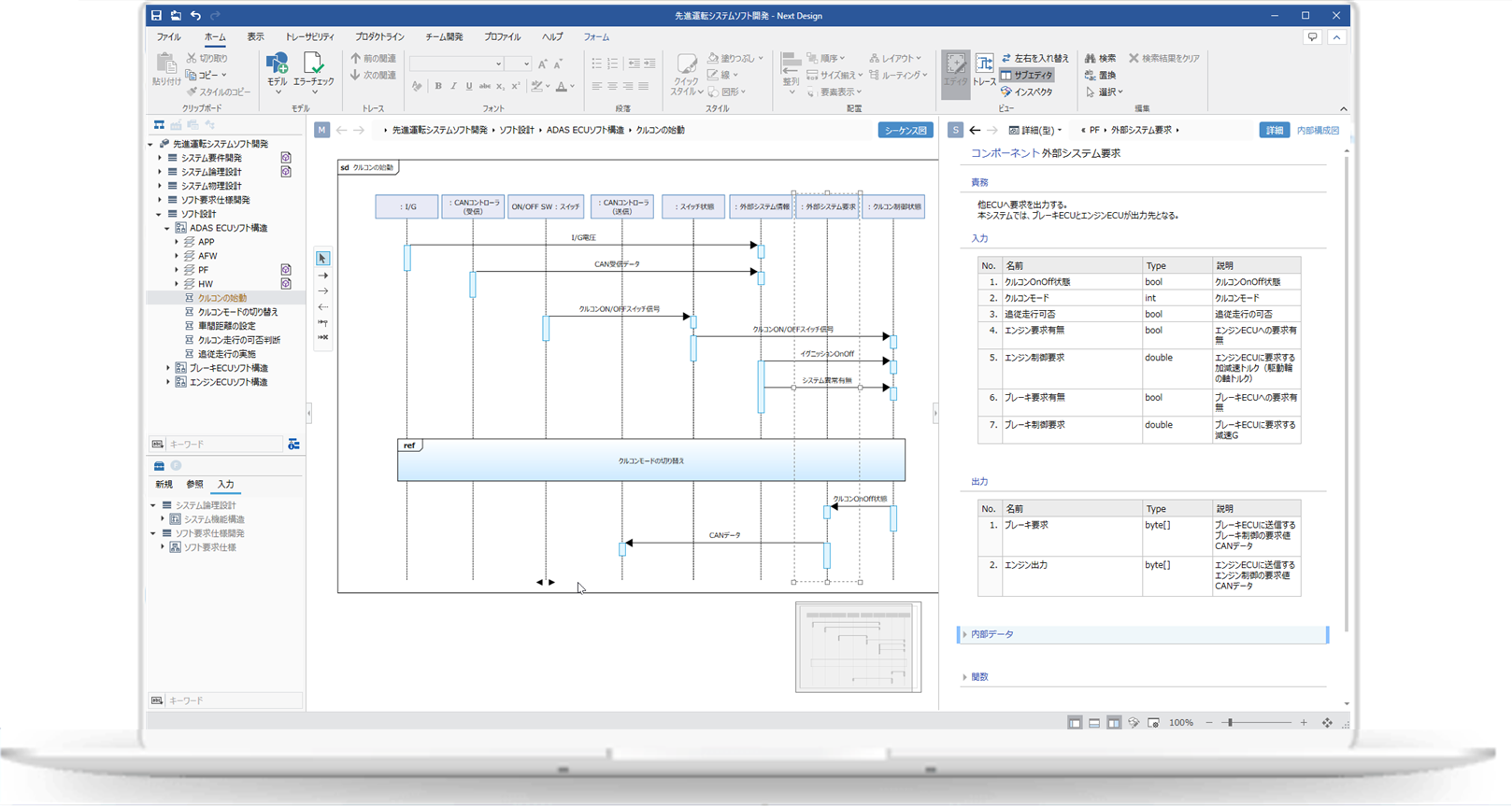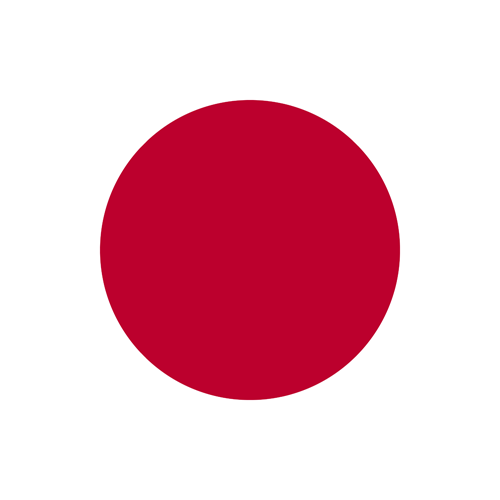Released Next Design v2.0, a system and software design tool with support for distributed development using Git and new features for large-scale development.
Denso Create Corporation (Head Office: Naka-ku, Nagoya, Japan; President: Hideaki Miyagawa), a leading developer of embedded software for the automotive industry, has released the latest version of its next-generation system software design tool, Next Design. (HQ: Nagoya, Japan; President: Hideaki Miyagawa), a leading developer of embedded software for the automotive industry, will begin offering the latest version of its next-generation system software design tool, Next Design v2.0", the latest version of the next-generation system software design tool, will be available from January 20, 2022. At the same time, a free evaluation version will also be available.

Next Design Next Design can be used as a dedicated design tool by adapting the "meta-model," which defines the structure and relationship of design information for each process, and the "view definition," which is a diagram and document representation for expressing the meta-model, to the viewpoints and applications of the development site. This allows the use of specifications and design tools that were previously expressed in Word/Excel or UML/SysML. This enables design methods and processes unique to the development site, such as specifications and design documents that have been expressed in Word/Excel or UML/SysML, to be organized and converted into tools, and enables the sharing of design data across the organization while maintaining traceability. Since its launch in 2020, it has been widely used not only in the automotive industry but also in various industries such as electrical equipment.
The latest version, Next Design v2.0, provides a unique Git merge tool for more flexible distributed development. It also allows users to load only a portion of data and start working without stress, even on large projects. Furthermore, it has evolved with a number of additional features to provide stronger support for large-scale development sites, including the addition of a floating license for more flexible operations. More information on the new Next Design can be found at
What's New in Next Design V2.0

- Unique Git merge tool for more flexible distributed development
- Visualization of change differences in human readable file format
- Stress-free start of work on large projects by loading only a portion of the project
- Floating licenses are also supported
- Enhanced sequence diagram design capabilities
- Enhanced UML/SysML support
- Customize the UI to further extend Next Design
- Numerous other additions and improvements
For more information, please visit.
h ttps:// www.nextdesign.app/feature/v20/
Next Design Overview
Price (annual fee)
- User license: 60,000 yen (66,000 yen including tax)
- Floating license: 240,000 yen (264,000 yen including tax) and up
Requirements
- OS: Windows 10
Denso Create Company Profile
Denso Create Inc. is a software development company wholly owned by Denso Corporation. Since its establishment, DENSO CREATE has been practicing field-oriented improvement activities based on man-hour counts for more than 20 years. Based on this experience, they have developed "TimeTracker NX," a man-hour and project management tool, and "Lightning Lightning Review" is a design review support tool. These tools are widely used in all industries and departments, including design and development departments, production engineering departments, software development and system development departments, administrative departments, and the shared services industry, mainly in the major manufacturing industries.
Company name: Denso Create Inc.
Head Office: Nagoya Fushimi K Square, 2-14-19 Nishiki, Naka-ku, Nagoya, Aichi 460-0003, Japan
Representative: Hideaki Miyagawa, President and Representative Director
Establishment: February 14, 1991
Capital: 95 million yen
URL: https: //www.denso-create.jp/
All company and product names are trademarks or registered trademarks of their respective companies.


